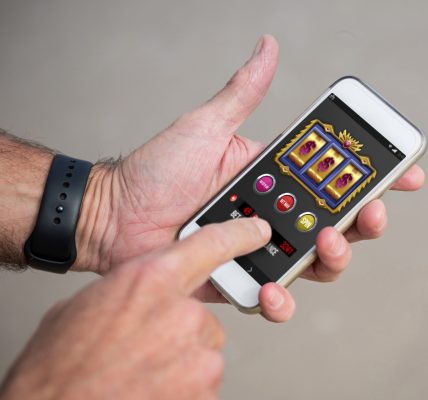An Activist Who Knows What’s What

A particular kind of anguish lives in the souls of people whose loved ones are intelligent, charismatic, multi-talented junkies. “What is your problem, anyway?” they cannot help wondering. “With all your brilliance and your amazing abilities. Everyone loves you, and I love you. Why isn’t that enough?” The person can’t tell you. Even if they were able to, you can’t fix it for them anyway.
When pondering the deep questions of drug abuse, it is useful to consult an intelligent and articulate addict, like Russell Brand, who was born in 1975. Before he was six months old his parents divorced. At 16, he left his mother’s home, and after expulsion from school, engaged in multi-drug use that narrowed down to a heroin habit. As a teenager, he also dealt with bulimia. He counts December 12, 2002, as his sober rebirth day, achieved through the United Kingdom’s Focus 12 Drug Addiction Treatment Center.
Russell’s multifaceted career includes turns as a producer, writer, actor, TV host, and stand-up comedian. Addiction was the topic of his one-man show, Better Now, which debuted at the 2004 Edinburgh Festival. He has published two memoirs, My Booky Wook: A Memoir of Sex, Drugs, and Stand-Up, and My Booky Wook 2: This Time It’s Personal, and won awards for many creative accomplishments.
Russell Brand is not everyone’s cup of tea, but when he tells the world what he knows about addiction, he is worth listening to. There is, for instance, no such thing as a “gateway drug” that magically transforms normal people into addicts. He writes,
Trauma is the gateway. Childhood abuse is the gateway. Molestation is the gateway. Neglect is the gateway.
I’ve always had this impulse to be destructive. I have to say to myself, ‘Remember, you’ve got all these things to do — don’t ruin it just for the moment.’
Aside from being a recovering addict himself, Brand has also been the despairing bystander. About one friend, he laments that “even though she has genuine opportunities for a new start, the gutter will not release its prey. The gutter is within. It is frustrating to watch. It is frustrating to love someone with this disease.”
Of another friend, he says,
His family blame themselves and wonder what they could have done differently, racking their minds for a perfect sentiment; wrapped up in the perfect sentence, a magic bullet to sear right through the toxic fortress that has incarcerated the person they love and restore them to sanity… It is difficult to suffer the selfishness of a drug addict who will lie to you and steal from you…
The world-famous comedian has a lot more to say about this subject, through several media outlets. Also, he is Chair of the Stay Free Foundation, which supports people trying to claw their lives back from the merciless grasp of substance addiction.
He is also one in the long line of entertainers to be “canceled” because of allegations of past improper behavior toward women. Many organizations have broken their connections with Brand, but not because he somehow cheats them out of anything. No, they have instructed him to stop raising funds for their clients, who include starving people, and others in dire need of help. (Addicts are not the only ones whose actions can be incomprehensible to normal and sane people.)
Recovering addicts can also be brutally honest. “The last time I thought about taking heroin was yesterday,” Brand once told a journalist — and that was after a full decade of being straight.
But what, even after all those years, is the attraction of the stuff? It’s pretty simple, actually:
I cannot accurately convey to you the efficiency of heroin in neutralizing pain… I have friends who can smoke weed, swill gin, even do crack and then merrily get on with their lives. For me, this is not an option. I will relinquish all else to ride that buzz to oblivion. Drugs and alcohol are not my problem, reality is my problem, drugs and alcohol are my solution.
In 2013, Brand wrote,
It is 10 years since I used drugs or drank alcohol and my life has improved immeasurably. I have a job, a house, a cat, good friendships and generally a bright outlook. The price of this is constant vigilance because the disease of addiction is not rational.
All retired users confirm that point. The disease is not rational, and furthermore, it doesn’t give a damn about you. When it beckons you may protest, “Are you kidding? We’re talking about me diving headfirst back into hell it took years to escape from.”
The disease says, “What’s your point? Get over here and cook this stuff up.” Brand affirms that the mentality and behavior of addicts, including alcoholics, is wholly irrational. This is because they have no power over addiction, and unless they get some structured help, they also have no hope.
Brand writes,
I think that most of the things achievable through drugs, certainly the things that people are trying to find through drugs, are accessible through other means – perhaps like meditation or prayer or contact through some kind of higher power.
If you regard alcoholics and drug addicts not as bad people but as sick people then we can help them to get better. By we, I mean other people who have the same problem but have found a way to live drug-and-alcohol-free lives.
Written by Pat Hartman. First published May 24, 2024.
Sources:
“Russell Brand biography,” IMDB.com, undated
“Russell Brand: my life without drugs,” The Guardian, March 8, 2013.
Image Copyright: Raph_PH/CC BY 2.0 DEED




